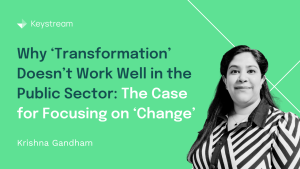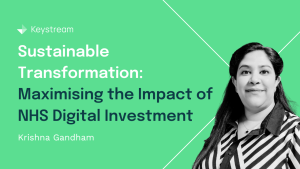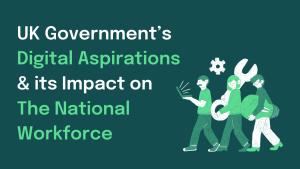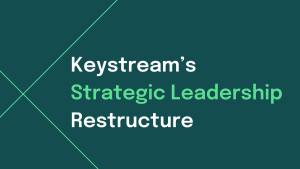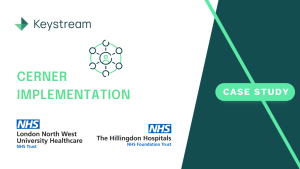25.04.2024
Why ‘Transformation’ Doesn’t Work Well in the Public Sector: The Case for Focusing on ‘Change’
As someone who has worked both within public sector organisations and as a consultant advising them, I have had a unique vantage point on the challenges of driving meaningful change. Time and again, I have witnessed the limitations of the traditional ‘transformation’ approach, and the need for a greater emphasis on more incremental, adaptable ‘change’ initiatives to unlock lasting and sustainable improvements.
The concept of ‘transformation’ has long been touted as the holy grail of organisational change, promising to revolutionise the way public sector entities operate. However, the reality is often quite different. Public sector organisations, with their complex bureaucracies, entrenched processes, and diverse stakeholder interests, can be notoriously resistant to large-scale, disruptive changes.
The Limitations of ‘Transformation’
One of the primary issues with the ‘transformation’ approach is its inherent focus on sweeping, top-down initiatives. These initiatives often require significant upfront investment, both in terms of time and resources, and can be perceived as threatening by employees who are comfortable with the status quo. As a result, resistance to change can be high, and the implementation of these initiatives can be fraught with challenges and delays.
Moreover, the public sector’s unique operating environment, with its emphasis on accountability, transparency, and the need to serve the broader public interest, can make it particularly difficult to implement transformative changes in a seamless and efficient manner. The need to navigate complex political landscapes, comply with stringent regulations, and address the concerns of diverse stakeholders can all contribute to the challenges of driving large-scale transformation.
The siloed nature of many public sector organisations can also hinder transformation efforts. Departments and agencies often operate in isolation, with their own processes, systems, and priorities. Attempting to coordinate a comprehensive, cross-cutting transformation can be extremely complex, leading to further delays and resistance to change.
The Power of ‘Change’
In contrast, a focus on ‘change’ rather than ‘transformation’ may be a more effective approach for public sector organisations. Change, by its very nature, is more incremental, iterative, and adaptable, allowing organizations to navigate the complexities of the public sector landscape more effectively.
By breaking down larger initiatives into smaller, more manageable steps, organisations can build momentum, foster buy-in from employees, and demonstrate tangible results more quickly. This approach also allows for greater flexibility, enabling organisations to adjust their strategies and tactics as needed in response to changing circumstances or emerging challenges.
Moreover, a focus on change can help to cultivate a culture of continuous improvement, where employees are empowered to identify and address pain points, experiment with innovative ideas, and contribute to the ongoing evolution of the organisation. This can lead to a more engaged and motivated workforce, which is essential for driving sustainable change in the public sector.
Embracing a ‘Change’ Mindset
To effectively implement a ‘change’ mindset in the public sector, organisations should consider the following strategies:
- Adopt a Collaborative Approach: Engage with key stakeholders, including employees, citizens, and other public sector entities, to understand their needs and concerns, and to build a shared vision for change.
- Prioritise Quick Wins: Identify and implement smaller, high-impact changes that can demonstrate tangible results and build momentum for further improvements.
- Foster a Culture of Innovation: Encourage employees to experiment with latest ideas, learn from failures, and continuously seek ways to improve processes and services.
- Leverage Technology Strategically: Utilise digital tools and technologies to streamline operations, enhance service delivery, and empower employees to work more efficiently.
- Measure and Communicate Progress: Establish clear metrics and KPIs to track the impact of change initiatives, and regularly communicate successes and lessons learned to all stakeholders.
By embracing a ‘change’ mindset and implementing these strategies, public sector organisations can navigate the complexities of the modern landscape and drive meaningful, sustainable improvements that benefit both employees and the citizens they serve.
HMCTS: Driving Change Through an Incremental Approach
As a compelling case study, the digital transformation of the UK’s HM Courts & Tribunals Service (HMCTS) illustrates the benefits of adopting a ‘change’ mindset over a ‘transformation’ approach in the public sector.
Rather than pursuing a single, large-scale ‘transformation’ initiative, HMCTS has taken a more incremental, iterative approach to driving change across its operations. As outlined in ‘Sharing the HMCTS Change Framework Across Government 2’, the organisation has broken down its reform efforts into four key thematic areas:
- Redesigning channels and shifting towards online services
Focuses on redesigning HMCTS services around the needs of users, often by moving services online and digitising processes. This aligns with the goal of delivering a more accessible and user-centric justice system. - Enhancing the use of audio and video hearings
Involves increasing the use of remote and virtual hearing capabilities, leveraging audio and video technologies to enable more efficient and flexible court proceedings. - Changing the physical court estate and how it is utilised
Deals with transforming the physical infrastructure and footprint of the courts and tribunals system. This includes optimising the use of the existing estate and exploring the use of alternative, supplementary venues. - Centralising processes and providing additional support
Focuses on streamlining and centralising HMCTS operations, such as simplifying case management systems and data processes. This is coupled with efforts to provide enhanced support services for users navigating the justice system.
This modular approach allows HMCTS to tackle change in a more manageable, adaptable way, rather than attempting a sweeping overhaul of the entire system.
The concept described in the ‘HMCTS Reform Evaluation Framework 1’, further highlights HMCTS’s emphasis on measuring the outcomes and impacts of these individual change initiatives, rather than relying on broad transformation metrics. By tracking tangible outputs, outcomes, and impacts, the organisation can demonstrate the value of its efforts and make data-driven decisions about future changes.
Crucially, HMCTS has also recognised the importance of fostering a culture of innovation and continuous improvement. The organisation2 has actively shared its “change framework” and lessons learned with other government departments, enabling cross-pollination of ideas and the development of a broader community of practice around public sector transformation.
This collaborative, iterative approach stands in contrast to the more top-down, disruptive nature of traditional ‘transformation’ programs. By breaking down change into smaller, manageable components and actively engaging with stakeholders, HMCTS has increased the likelihood of successful implementation and sustainable improvements.
The HMCTS case study underscores the value of adopting a ‘change’ mindset in the public sector, where the complexities of bureaucracy, regulation, and diverse stakeholder interests can often derail large-scale, transformative initiatives. By embracing an incremental, evidence-based approach to change, HMCTS has positioned itself to drive meaningful and lasting improvements in the delivery of justice services.
